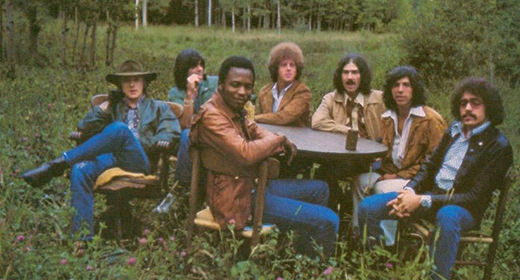by Damian McNamara: June 11, 2021 — In normal times, summer travel is all about unwinding, spending time outdoors, and putting most cares aside, at least temporarily…
Through the lens of the COVID-19 pandemic, however, carefree summer travel looks more challenging.
Consider the safest way to get to your destination, what health precautions remain necessary, and what the COVID-19 case numbers look like at your destination, experts advise.
For people with health conditions that increase risk for more severe COVID-19 or for whom the vaccines might be less effective, “it still might not be a good time to travel,” he said.
Pack the Travel Guide — and the Travel Guidance
So where to? The CDC’s Travelers’ Health website is the best place to start, Wu said. “The number of countries that are coming off the highest level [travel warning] is increasing.”
Countries in the midst of serious surges are not good choices, Wu said. “Even if you are vaccinated, should you need health care during your trip, whether from a car accident or a heart attack you become a burden to a struggling health system.”
Summer travel plans also start with vaccination, Wu said. “I really strongly advise everyone to get vaccinated when it’s available to you.” Also, remember to pack your CDC-issued vaccination card and make copies, including one that can be stored on the internet as a backup.
“So that mask might save you a big headache.”
Variants of Concern and Single Dose Protection
More and more data suggest the COVID-19 vaccines offer protection against variants of concern, including the delta variant, first identified in India, Wu added.
“Our vaccines are effective in that they can prevent severe illness and probably most infections from the delta variant,” Wu said. Furthermore, when there are “breakthrough” infections — cases where vaccinated people still become infected — most cases are mild.
“I can’t say that all the data is there and there’s 100% certainty,” Wu said, especially if a new variant of concern emerges. He recommends always taking extra precautions, “whether it’s masking up in high-risk situations or maybe avoiding countries with high levels of transmission.”
‘Get That 2nd Dose’
The situation is obviously riskier for the unvaccinated, but what about those people who are in between their first and second doses or those who — for whatever reason — only received the first of a recommended two-dose vaccine?
Anthony Fauci, MD, chief medical advisor to the Biden administration, cited a study preprint that has not yet been peer reviewed that said the Pfizer vaccine is 88% effective against the delta variant with two doses. However, this effectiveness drops to 33% with one dose. The study only looked at the Pfizer vaccine and not the two-dose Moderna shot or the one-shot Johnson & Johnson vaccine.
Similarly, the 60% effectiveness of two doses of the AstraZeneca vaccine also drops to 33% with only a single dose.
“My quick the quick advice is to get that second dose, even if it’s late,” Wu said. “It’s certainly something I would do before your trip.”
Unless there is a medical reason or an allergy that precludes a second dose, “why settle for partial benefit when you can get the full benefit with that second dose?” Wu asked. “I certainly would get it.”
It’s About the Journey and the Destination
In general, road trips might be the safest form of summer travel because they allow full control over your surroundings en route. It is still essential to avoid crowded spaces when you stop along the way, Wu said.
Others will still opt for air travel. Airports and airlines still require passengers to wear masks, including those who have been vaccinated. The CDC has mandated masks on all forms of public transportation, which includes trains, buses, ride-shares, and more.
Try to minimize how often you remove a mask “if you want to be extra safe. Even if you’re vaccinated, I always like to take those extra precautions.”
Cruise Control
The CDC continues to enforce a No Sail Order for cruise ships that operate in U.S. waters, first issued March 14, 2020. The agency continues to cite the risk for introduction, transmission, and spreading of COVID-19.
Cruises are “very interesting,” Wu said. Certain cruise lines have mandatory vaccine requirements for all passengers as well as crew.”Some have relaxed [the criteria], some have backtracked a little bit, but others have a very clear requirement,” he added. “Certainly travelers should take note of that before booking any cruises.”
CDC press officer Scott Pauley said in an email, “We currently recommend that all people avoid travel on cruise ships, including river cruises, worldwide. As for future cruises, they should continue to monitor our guidance for any updates,”
And recently, two Americans aboard a Celebrity Cruise Line cruise from St. Maarten tested positive for COVID this week, CNN reported.
International Plans
The CDC recently downgraded its warning levels for more than 100 countries. The move comes after the agency changed its criteria for travel advisories. For example, the highest warning, level 4, now requires 500 cases of COVID-19 per 100,000 residents, up from 100 cases per 100,000.
Not surprisingly, one country not downgraded was India. The May 5 State Department “Do Not Travel” advisory for India, citing a “very high level” of COVID-19, still holds.
Another recommended source of information is the Department of State website, which provides updated information on COVID-19 and other risks searchable by country.
A Pandemic Dog Delays Travel Plans
When asked about whether or not he would travel this summer, Wu responded, “I’ve been vaccinated for over 6 months and I’ve been actually itching to get on a plane to visit my parents.”
Both of his elderly parents are vaccinated as well, so Wu believes it is safe for him to go visit them in Hawaii.
What’s the catch? A relatively new family member. Wu adopted a pandemic dog in the past year “and it is proving problematic to put the dog into boarding. That’s what’s keeping me from booking my trip, but I hope to do that in the next month or so.”
A New Hopeful Phase
“We are in a year and a half into this pandemic and we’re entering a new, exciting and hopeful phase,” Wu said
Because COVID-19 is a global concern, particularly for travelers, he welcomed the news that the U.S. plans to donate another 500 million doses of COVID-19 vaccines to the world. “This is excellent news that comes just as much of the world is opening up to travelers again.”
Source: Web MD










































